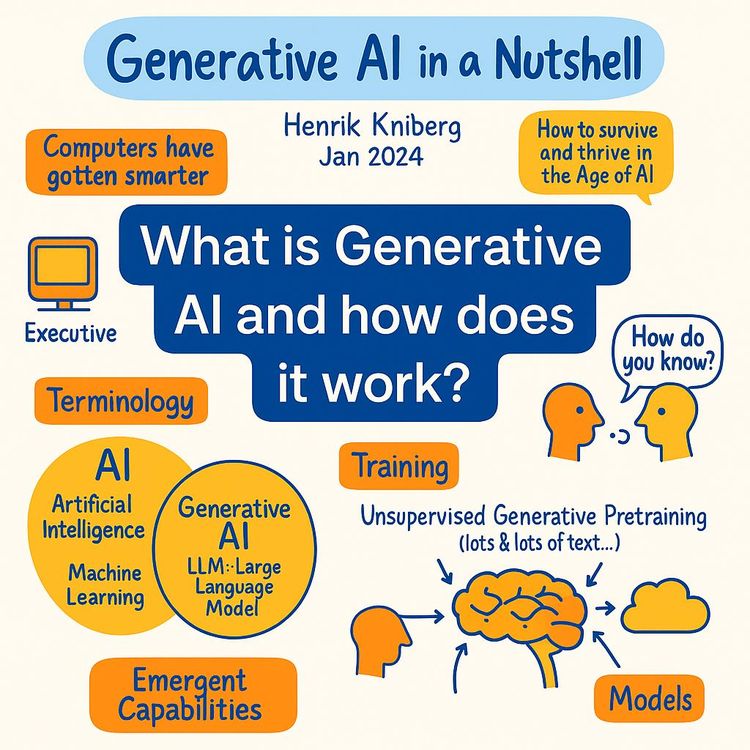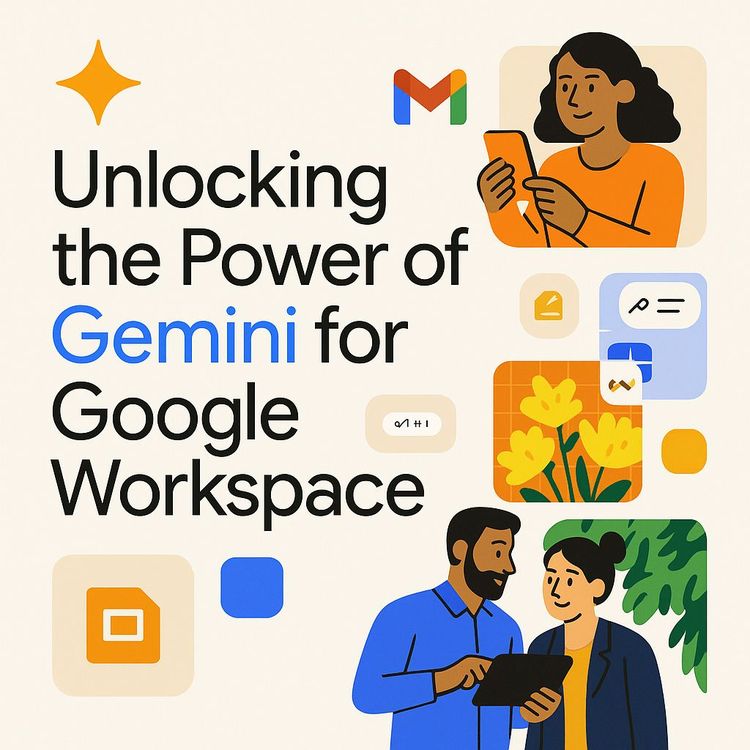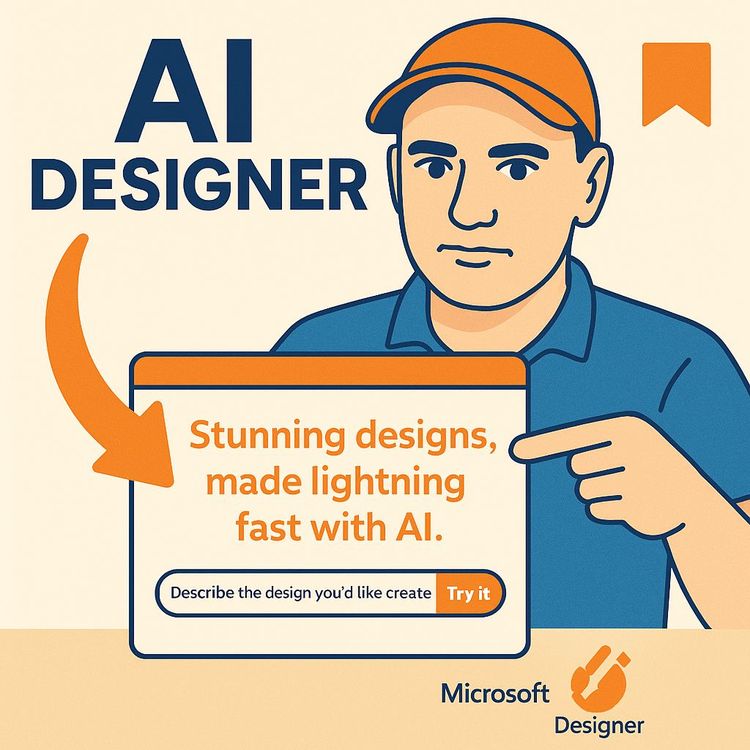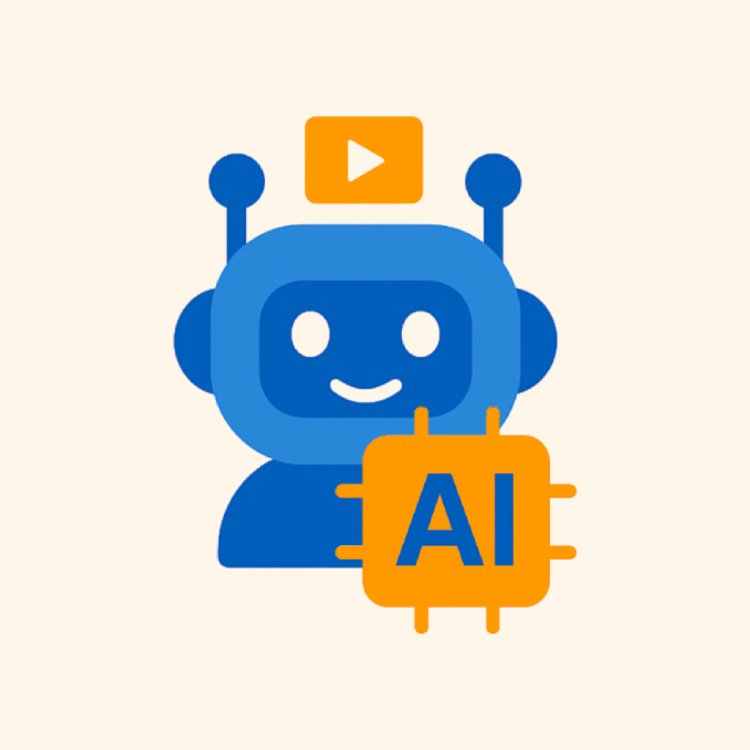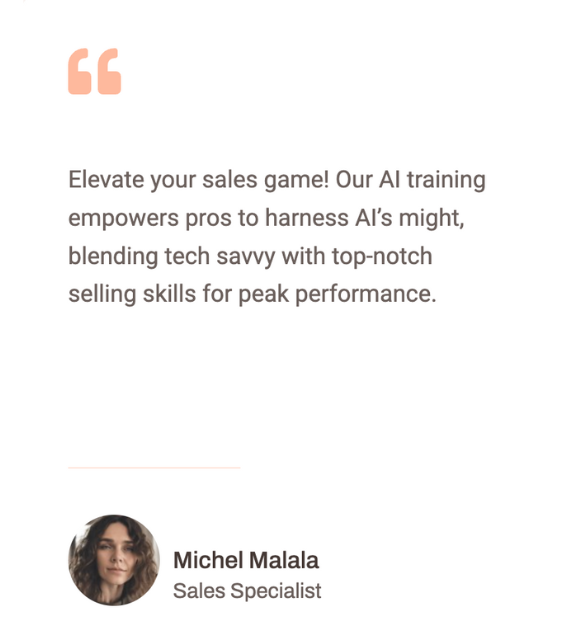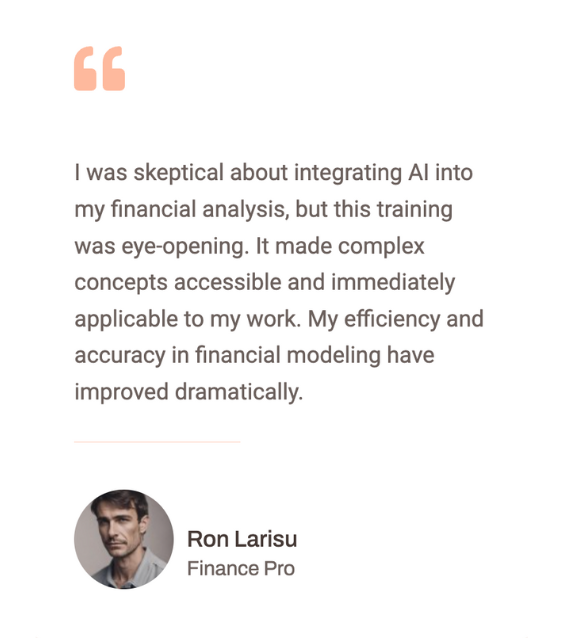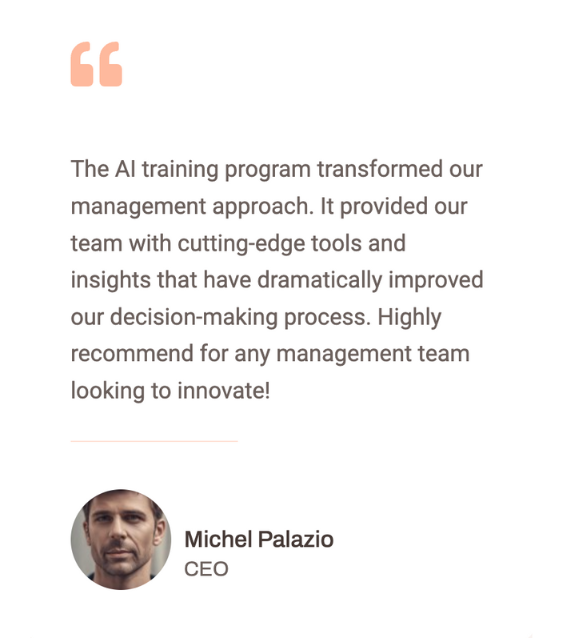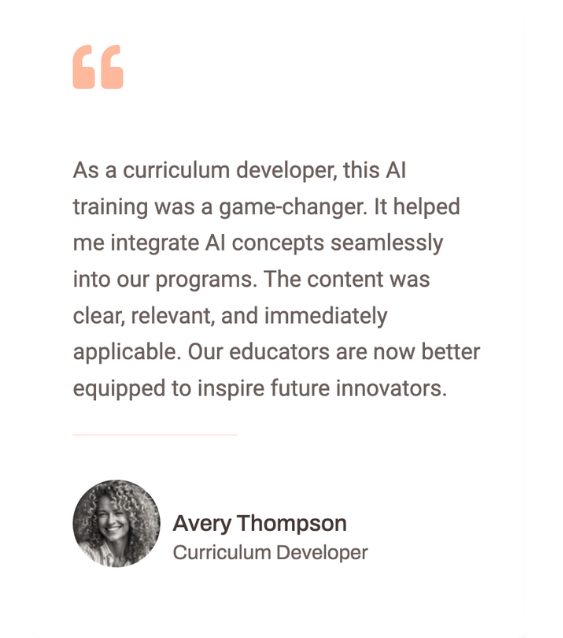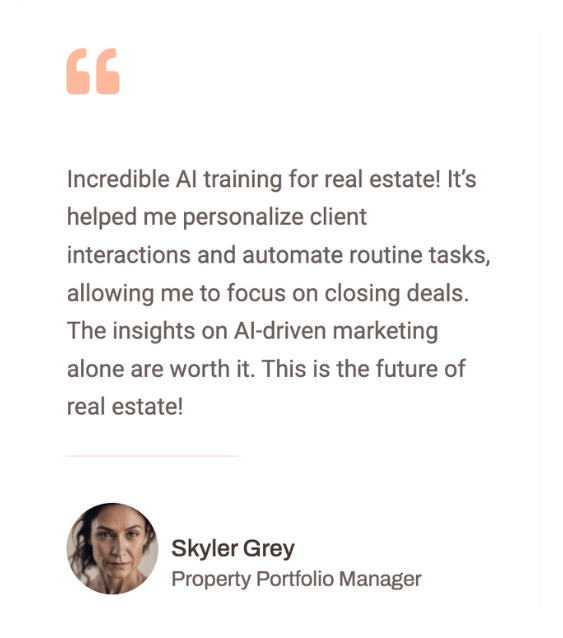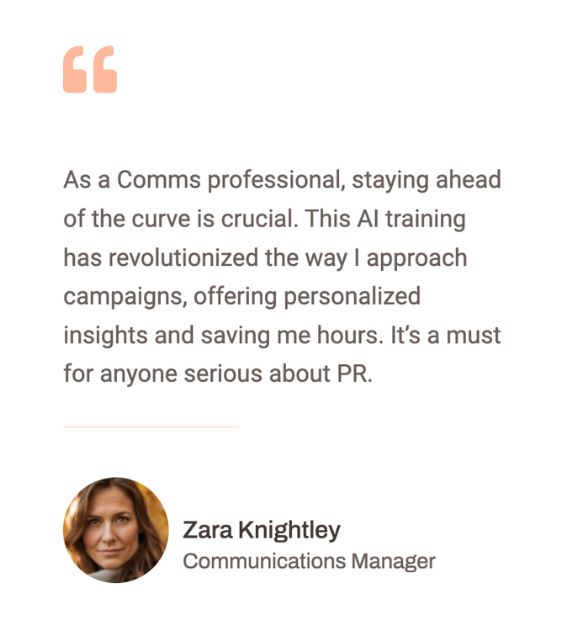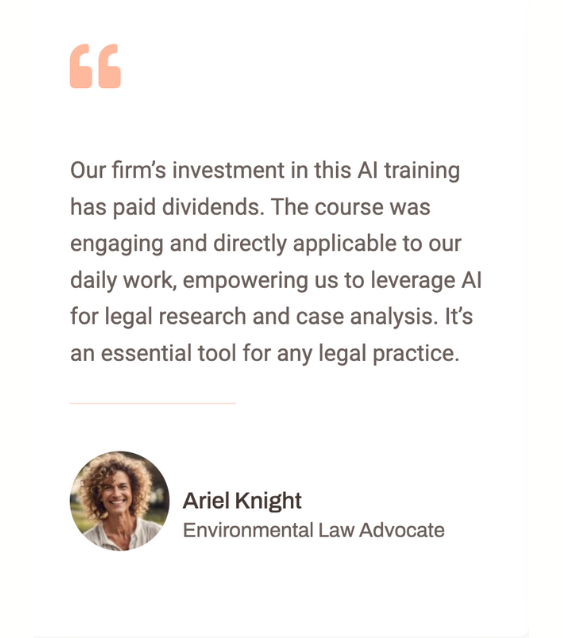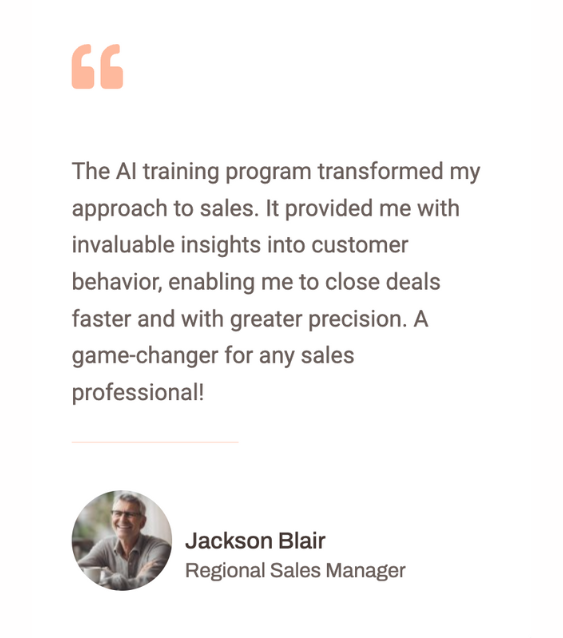Video Course: How AI Agents Will Replace Tasks - And How You Can Build Your Own
Discover the transformative world of AI agents and their unprecedented potential to revolutionize task management. Learn to build your own AI agents, explore decentralization, and gain insights into data privacy—all to enhance productivity and innovation.
Related Certification: Certification: Building and Implementing AI Agents to Automate Business Tasks
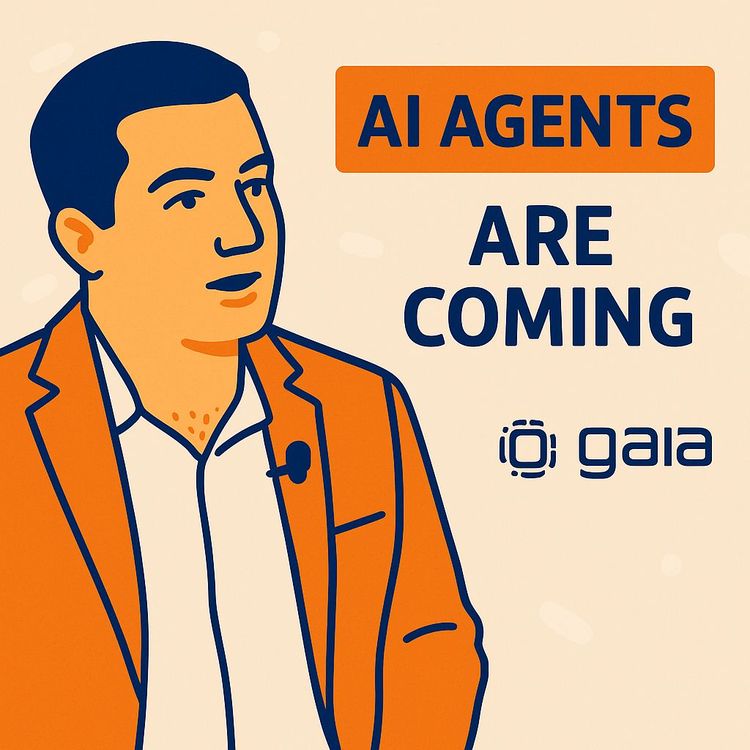
Also includes Access to All:
What You Will Learn
- How AI agents function and their real-world use cases
- How to build, train, and deploy an AI agent with open-source LLMs
- Differences between centralized and decentralized AI architectures
- Strategies for data ownership, privacy, and on-premises hosting
- Verification, trust mechanisms (e.g., blockchain) and ethical considerations
Study Guide
Introduction
Welcome to the course "Video Course: How AI Agents Will Replace Tasks - And How You Can Build Your Own". This course is designed to guide you through the transformative world of AI agents, exploring their potential to revolutionize task management and productivity. We'll delve into the intricacies of building your own AI agents, the importance of decentralization, and the role of open-source large language models (LLMs) in this evolving landscape. By the end of this course, you'll have a comprehensive understanding of how AI agents can be leveraged to enhance personal and organizational capabilities, while also addressing the crucial aspects of data ownership and privacy.
The Proliferation of AI Agents
AI agents are poised to become ubiquitous, outnumbering humans and transforming productivity.
Imagine a world where AI agents serve as super personal assistants, managing fleets of tasks with unprecedented efficiency. This section explores the rapid growth of AI agents and their potential to enhance individual and organizational capabilities.
The concept of AI agents is not just theoretical; it's a burgeoning reality. For instance, consider an AI agent managing personal finances by automating bill payments, investment tracking, and budget planning. Similarly, in a corporate setting, AI agents could handle customer service inquiries, freeing up human resources for more complex tasks.
As we anticipate a future where AI agents outnumber humans, the implications for productivity and efficiency are profound. The ability to manage thousands of AI agents could lead to unprecedented levels of automation and innovation across various domains.
Decentralization vs. Centralization in AI
The tension between centralized and decentralized AI systems is a pivotal theme in the evolution of AI technology.
This section delves into the dichotomy between closed, centralized AI systems and open, decentralized alternatives, highlighting the benefits and challenges of each approach.
Centralized AI systems, like those developed by OpenAI, offer robust capabilities but come with concerns about data privacy and control. In contrast, decentralized AI systems empower users to host and manage their AI models, ensuring data sovereignty. For example, a company could use open-source LLMs to create a customized AI model tailored to their specific needs, without relying on third-party services.
Decentralization fosters innovation by allowing community contributions and reducing reliance on a few large corporations. This shift mirrors the historical rise of open-source software like Linux, which challenged proprietary systems such as Microsoft Windows.
The Importance of Open Source LLMs
Open-source large language models (LLMs) are democratizing AI by making advanced capabilities accessible to all.
This section explores the exponential growth of open-source LLMs and their role in enabling organizations and individuals to build their own AI architectures.
Platforms like Hugging Face have become the "GitHub for large language models," offering a vast repository of open-source LLMs. This accessibility allows organizations to download and host LLMs on their infrastructure, ensuring data privacy and customization. For instance, a healthcare provider could use an open-source LLM to develop an AI agent that assists in patient diagnosis while maintaining control over sensitive data.
The proliferation of open-source LLMs signifies a paradigm shift in AI accessibility, empowering users to innovate and create tailored solutions for their unique needs.
Data Ownership and Privacy Concerns
Data ownership and privacy are critical considerations in the development and deployment of AI agents.
This section addresses the risks associated with centralized AI models and highlights how open-source solutions offer greater control over data usage.
Centralized AI models often train on vast datasets, raising concerns about IP infringement and data misuse. Open-source alternatives mitigate these risks by allowing users to host AI models on their infrastructure, ensuring data privacy and compliance with regulatory requirements. For example, a financial institution could deploy an open-source AI model to analyze market trends without exposing sensitive customer data to external platforms.
By controlling the hosting and management of AI models, organizations can safeguard their data and maintain compliance with data protection regulations.
The Potential of AI Agents for Creators and Businesses
AI agents offer transformative potential for content creators and businesses, enabling automation and new revenue streams.
This section explores practical applications of AI agents in creating digital twins and automating content generation.
For content creators, AI agents can serve as digital twins, automating content creation and recommendations. Imagine an AI agent trained on a creator's content, generating personalized recommendations for followers or even participating in virtual collaborations. Businesses can leverage AI agents to automate routine tasks, such as customer support or inventory management, enhancing efficiency and reducing operational costs.
Projects like GEA aim to provide frameworks for creators to monetize their AI agents, ensuring that the value generated by these agents flows back to the creators themselves.
The Need for Verification and Trust in the AI Ecosystem
Trust and verification are essential in the AI ecosystem to prevent misuse and ensure accountability.
This section discusses the challenges of rogue agents and the role of blockchain technology in creating a trusted AI knowledge base.
Rogue agents and identity theft pose significant risks in the AI landscape. Blockchain technology offers a solution by providing verification mechanisms that ensure the authenticity and source of AI agents. For instance, a blockchain-based system could verify the identity of an AI agent, preventing impersonation and misuse.
By leveraging blockchain for verification, users can trust the AI agents they interact with, fostering a secure and accountable AI ecosystem.
The Evolution of the Internet to "Read, Write, Own, and Think"
The evolution of the internet is paving the way for digital entities to think and execute processes autonomously.
This section explores the progression from Web1 to Web3 and the future of autonomous digital entities.
The internet has evolved from a static information repository (Web1) to an interactive platform (Web2) and now to a decentralized network (Web3) where users can own and control their data. The next frontier is enabling digital entities to "think" and execute processes autonomously, transforming how we interact with technology.
This evolution empowers individuals to become AI providers, fostering innovation and diversity in the AI landscape.
The Democratization of AI and Empowerment of Individuals
The democratization of AI is empowering individuals and smaller entities to become their own AI providers.
This section highlights the potential for a more diverse and context-aware AI ecosystem.
By leveraging open-source LLMs and decentralized platforms, individuals and organizations can build AI agents tailored to their specific needs and values. For example, a local community could develop an AI model that reflects their cultural context and language nuances, enhancing relevance and engagement.
This democratization fosters a more diverse AI ecosystem, reducing reliance on centralized AI entities and promoting innovation at the grassroots level.
Conclusion
In this course, we've explored the transformative potential of AI agents and the importance of decentralization in the AI landscape. From the proliferation of AI agents to the role of open-source LLMs and the challenges of data ownership, we've covered the key themes that are shaping the future of AI. As you embark on your journey to build your own AI agents, remember the importance of thoughtful application and the potential for innovation and empowerment in a decentralized AI ecosystem. The skills and knowledge gained in this course position you to leverage AI agents effectively, enhancing productivity and contributing to a more diverse and inclusive AI landscape.
Podcast
There'll soon be a podcast available for this course.
Frequently Asked Questions
Introduction
Welcome to the FAQ section for the 'Video Course: How AI Agents Will Replace Tasks - And How You Can Build Your Own.' This resource is designed to address common questions about AI agents, decentralisation, and how these technologies are transforming tasks in various industries. Whether you're a beginner or an experienced professional, this FAQ aims to provide practical insights and guidance on leveraging AI agents effectively.
What exactly is an AI agent, and how soon might we see them become prevalent?
An AI agent is described as a highly advanced personal assistant capable of performing complex tasks autonomously.
The speaker suggests that within the next one to two years, the number of AI agents could exceed the human population. These agents are envisioned as tools individuals can train and manage to automate workflows and potentially achieve "superhuman" capabilities through managing fleets of them.
What are the potential benefits of having a large number of AI agents in the world?
The proliferation of AI agents is expected to lead to significant automation across various domains.
From managing personal finances and automating business tasks to creating new forms of entertainment and collaboration, individuals managing these agents could achieve increased productivity and efficiency. Additionally, the automation could drive innovation and economic growth.
What are the concerns surrounding the rise of AI agents, particularly regarding identity and misuse?
A major concern revolves around the potential for identity theft and the creation of "rogue agents" by malicious actors.
If someone can create an agent that impersonates another individual, it could lead to financial fraud, reputational damage, and other forms of misuse. There are also questions about accountability and how to manage or "wipe out" agents that are behaving harmfully.
Why is the concept of decentralisation important in the context of AI and AI agents?
Decentralisation is presented as a crucial aspect of ensuring transparency, ownership, and control over AI technologies and data.
The speaker contrasts closed-source AI systems with open-source alternatives, arguing that open systems allow for community contribution, greater innovation, and user control over their data. Decentralised AI aims to prevent the concentration of power and control in the hands of a few large corporations, offering users the ability to host and manage their own AI models and data.
How can individuals and organisations leverage open-source large language models (LLMs) for their own purposes?
Open-source LLMs, like those found on platforms such as Hugging Face, provide a "recipe" that anyone can download and host on their own infrastructure.
This allows organisations and individuals to train AI models on their own data, ensuring privacy and customisation for specific use cases. By controlling the hosting of the LLM, users can mitigate the risk of data misuse associated with relying on third-party, closed-source AI services.
What is GEA, and how does it aim to address the challenges and opportunities presented by AI agents?
GEA (the specific meaning isn't fully elaborated but seems related to Generalised Embodied Agents or a similar concept) is a project focused on building a decentralised AI ecosystem.
It aims to provide a network where AI agents' knowledge bases and inferences can be verified and permissioned by their owners. This approach seeks to address concerns about identity theft and the misuse of AI by creating a transparent and accountable marketplace for AI knowledge and capabilities, leveraging blockchain technology for verification and incentivisation.
How might AI agents transform the creator economy and collaboration between individuals?
AI agents could revolutionise the creator economy by enabling digital twins or virtual versions of creators to collaborate with others, generate content autonomously, and interact with their communities in new ways.
For example, a creator could deploy an AI agent trained on their content to make recommendations or even participate in virtual collaborations. Decentralised platforms like GEA aim to ensure that creators retain ownership and can monetise the use of their AI agents and the data they are trained on.
What are the speaker's long-term hopes and vision for the future of AI and decentralisation?
The speaker envisions a future where the world's knowledge is onboarded into a diverse and decentralised AI ecosystem.
They hope that projects like GEA will empower individuals and organisations to become their own AI providers, fostering innovation and preventing the dominance of a few centralised AI entities. The goal is to create a more democratic and open AI landscape where users have control over their data and can choose how AI agents access and utilise information, ultimately leading to a more diverse and context-aware AI experience globally.
How can AI agents be used to automate tasks in business?
AI agents can automate a wide range of tasks, from routine administrative duties to complex decision-making processes.
For instance, they can manage scheduling, handle customer inquiries, and even perform data analysis. In finance, AI agents might automate bookkeeping or trading activities. By freeing human resources from repetitive tasks, businesses can focus on strategic initiatives and innovation.
What steps are involved in creating your own AI agent?
Creating an AI agent involves several key steps: defining the task, selecting the appropriate model, training the model, and deploying it.
First, you must clearly define what you want the agent to accomplish. Next, choose a suitable AI model, which could be an open-source option like those on Hugging Face. Train the model using relevant data, ensuring it learns the necessary skills. Finally, deploy the agent in a controlled environment where it can perform tasks autonomously.
What are some challenges in implementing AI agents?
Challenges in implementing AI agents include data privacy, integration with existing systems, and ensuring ethical use.
Data privacy is crucial, as AI agents often require access to sensitive information. Integrating AI agents with legacy systems can be technically complex and resource-intensive. Additionally, ethical considerations must be addressed to prevent misuse and ensure that AI agents operate within legal and moral boundaries.
How do AI agents impact data privacy, and what measures can be taken to protect it?
AI agents can pose risks to data privacy if not properly managed, as they often require access to sensitive information.
To protect data privacy, organisations can use encryption, access controls, and decentralised systems to ensure that data remains secure. Additionally, training AI agents on-premises or using private cloud infrastructure can help mitigate privacy risks associated with third-party data handling.
What is the difference between open-source and closed-source AI, and why does it matter?
Open-source AI is developed collaboratively and shared publicly, allowing anyone to use, modify, and distribute the software.
Closed-source AI, on the other hand, is proprietary and controlled by a single entity, limiting access and modification. Open-source AI fosters innovation, transparency, and community involvement, while closed-source AI can offer more stability and support but may restrict user control and customisation.
What role does Hugging Face play in the open-source AI landscape?
Hugging Face serves as a platform for sharing and accessing open-source AI models, particularly large language models (LLMs).
It is often likened to "GitHub for AI models," providing a space for developers to collaborate, download, and deploy AI models for various applications. This platform democratizes access to advanced AI technologies, enabling businesses and individuals to leverage powerful tools without starting from scratch.
How might AI agents influence the future of work?
AI agents are likely to transform the future of work by automating routine tasks and enabling more strategic and creative roles for humans.
As AI agents take over repetitive and time-consuming tasks, employees can focus on higher-level responsibilities that require critical thinking and innovation. This shift could lead to new job opportunities and a redefinition of existing roles, emphasizing the importance of human-AI collaboration.
How does decentralisation enhance AI development and deployment?
Decentralisation enhances AI by distributing control and ownership, reducing reliance on centralised entities, and fostering innovation.
In a decentralised AI ecosystem, individuals and organisations can develop and deploy AI models independently, ensuring greater transparency and accountability. This approach also encourages collaboration and competition, driving technological advancements and preventing monopolistic control.
What are the implications of AI agents having digital identities?
AI agents with digital identities can operate more autonomously and interact securely within digital ecosystems.
Digital identities enable AI agents to authenticate and authorise actions, ensuring accountability and traceability. However, this raises ethical and security concerns, such as identity theft and misuse. Implementing robust verification and reputation systems can help address these challenges, ensuring safe and responsible AI agent interactions.
How does blockchain technology support the development of AI agents?
Blockchain technology provides a secure and transparent framework for managing AI agents and their interactions.
By leveraging blockchain, AI agents can operate within a decentralised network, ensuring data integrity and traceability. Smart contracts can automate transactions and enforce rules, while tokenisation enables new monetisation models. Blockchain's immutable nature also enhances trust and accountability in AI agent ecosystems.
How can AI agents drive business innovation?
AI agents can drive business innovation by automating processes, enhancing decision-making, and enabling new business models.
With AI agents handling routine tasks, businesses can allocate resources to research and development, exploring new opportunities and improving products and services. AI agents can also provide insights and recommendations based on data analysis, supporting strategic planning and competitive advantage.
What are the ethical considerations of deploying AI agents?
Ethical considerations include ensuring fairness, transparency, accountability, and preventing harm.
AI agents must be designed to operate without bias, respecting user privacy and autonomy. Developers should implement mechanisms for monitoring and auditing AI agent behaviour, addressing any unintended consequences or misuse. Engaging stakeholders in discussions about ethical AI deployment can help create guidelines and standards for responsible AI agent use.
How can AI agents enhance collaboration within organisations?
AI agents can enhance collaboration by facilitating communication, information sharing, and task coordination.
They can act as intermediaries, translating data between departments and ensuring that teams have access to relevant information. AI agents can also automate meeting scheduling, document management, and project tracking, streamlining workflows and reducing administrative burdens.
How can AI agents improve customer experience?
AI agents can improve customer experience by providing personalised, efficient, and responsive service.
They can handle customer inquiries, offer tailored recommendations, and resolve issues quickly, enhancing satisfaction and loyalty. AI agents can also analyse customer data to identify trends and preferences, enabling businesses to refine their offerings and better meet customer needs.
What role can AI agents play in education?
AI agents can revolutionise education by providing personalised learning experiences and automating administrative tasks.
They can adapt educational content to individual learning styles, offer instant feedback, and track progress. AI agents can also assist educators by managing scheduling, grading, and reporting, allowing teachers to focus more on student engagement and instruction.
How can AI agents contribute to the healthcare industry?
AI agents can contribute to healthcare by improving diagnostics, treatment planning, and patient management.
They can analyse medical data to identify patterns, assist in diagnosing conditions, and recommend treatment options. AI agents can also streamline administrative tasks, such as appointment scheduling and billing, freeing healthcare professionals to focus on patient care.
How can AI agents support sustainability efforts?
AI agents can support sustainability by optimising resource use, reducing waste, and enhancing environmental monitoring.
They can analyse data to improve energy efficiency, manage supply chains, and monitor environmental impacts. AI agents can also facilitate the development of sustainable technologies and practices, contributing to a more sustainable future.
Certification
About the Certification
Upgrade your CV with proven expertise in designing and deploying AI agents for business automation. This certification demonstrates practical skills to streamline workflows and drive efficiency across diverse professional environments.
Official Certification
Upon successful completion of the "Certification: Building and Implementing AI Agents to Automate Business Tasks", you will receive a verifiable digital certificate. This certificate demonstrates your expertise in the subject matter covered in this course.
Benefits of Certification
- Enhance your professional credibility and stand out in the job market.
- Validate your skills and knowledge in cutting-edge AI technologies.
- Unlock new career opportunities in the rapidly growing AI field.
- Share your achievement on your resume, LinkedIn, and other professional platforms.
How to complete your certification successfully?
To earn your certification, you’ll need to complete all video lessons, study the guide carefully, and review the FAQ. After that, you’ll be prepared to pass the certification requirements.
Join 20,000+ Professionals, Using AI to transform their Careers
Join professionals who didn’t just adapt, they thrived. You can too, with AI training designed for your job.

